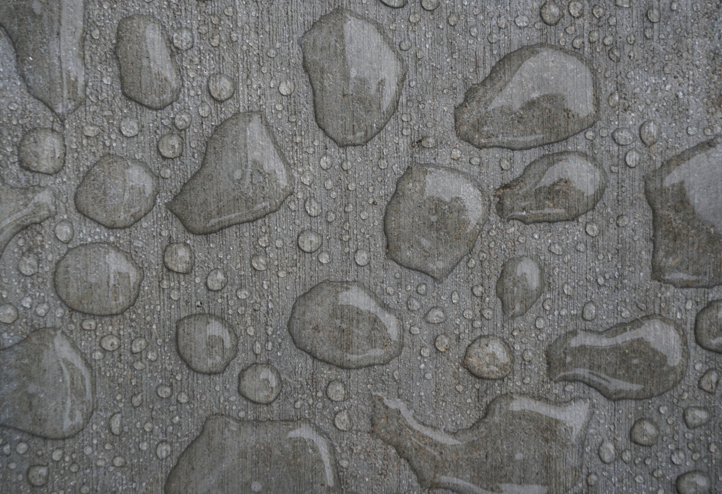Why do you seal Concrete?
What are the advantages? There are many reasons that concrete should be sealed:
- Protection
- Water Damage
- Enhancement
- Preservation
- Protection from Spalling
- Salts from the Winter

Beading Water on Concrete
Protection
Sealing your concrete will protect you from spills and stains. While the sealer does not stop 100% penetration, it will help “deep” penetration from oil spills, rust from water, dirt, grime, etc., making future cleanup easier!
Water Damage
Provides water repellency to porous construction material such as bricks, stone, concrete blocks, Composites, mortar, and grout.
Enhancement
Using a concrete sealer will enhance the natural tones of your concrete with a “wet” look. The sealer will also add a sheen to the cement. The shine level is dependent on the porosity of the cement but does come in a High Gloss, Semi-Gloss, and a Matte Finish.
Preservation
Sealing the brick or concrete will protect its original color and appearance. If not sealed, the cement will dull and look “pitted.” This is a result of natural weathering and traffic.
Spalling
Concrete spalling is caused by exposure to high temperatures. Spalling itself is actually the deterioration of the concrete, causing chunks of the concrete to separate from the concrete structure. Using a sealer can help prevent this.
Winter Salts
Protection from salts from the winter can reduce pitting and erosion of the concrete surface.





Can you put a matte solvent sealer over Super Sealer Semi gloss? I don’t like the real shiny look anymore. Will the matte sealer protect as long as the semi?
You cannot “dull” the shine of the semi-gloss by adding the matte over it. You would have to strip off the semi-gloss first.
Do you have a “topcoat” that I can apply over painted garage floor?
We do not.
what is best sealer for outdoor travertine
Try Super Seal-M: https://www.concretesealerstore.com/m-non-gloss-sealer.html